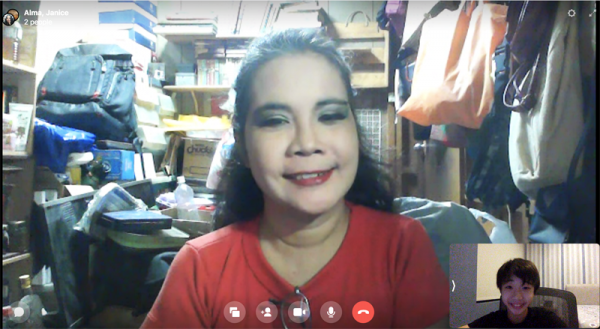KID REPORTERS’ NOTEBOOK
Top Filipino-American Journalist Is Convicted of Cyberlibel


Colin reports his article about Ressa from his home in the Philippines.
Maria Ressa is a respected journalist in the Philippines. A former investigative reporter for CNN in Southeast Asia, she is the co-founder of Rappler, a news website that exposes corruption in the Filipino government.
Ressa, who graduated from Princeton University, was one of four journalists given Time Magazine’s “Person of the Year” honor in 2018 as a “Guardian of the War on Truth.” Yet on June 15, Ressa was found guilty of cyberlibel.
Many people say that Ressa was targeted because she and Rappler have written about the human rights violations of President Rodrigo Duterte, the authoriarian leader of the Philippines. Duterte and other leaders are said to have ordered the country’s police officers to kill hundreds of people, many of whom are innocent and impoverished, as part of the country’s “War on Drugs.”

Journalist Maria Ressa has been targeted by the Filipino government because of her investigative reporting on corruption.
UNCOVERING THE TRUTH
Cyberlibel, a crime that falls under the Cybercrime Prevention Act of 2012, is the publishing of an article online that is both untrue and damages another person’s reputation. In 2012, a wealthy businessman named Wilfredo Keng loaned his car to Renato Corona, who was then the chief justice of the country’s Supreme Court. Corona, who was impeached and removed from office around the time the story was published, died in 2016.
A few months before the government act went into effect, Reynaldo Santos Jr., a journalist for Rappler, wrote about the loan and whether or not it was ethical. The story was updated two years later to fix a typographical error. Keng then sued the publication.
“The issue is anchored on a story about an impeached chief justice who had questionable links to businessmen,” said Rappler editor Chay Hofileña. “This was, to us, a clear public interest issue. The chief justice is supposed to be independent.”
Because Keng was mentioned in the article, linking him to drugs and murder, he sued Ressa and Santos.

Colin talks with Filipino editor Alma Anonas-Carpos about the case against Ressa.
A THREAT TO FREEDOM OF THE PRESS
Alma Anonas-Carpio, an editor at Philippines Graphic, the country’s leading newsweekly magazine, says that the case against Ressa and Santos is unfair. “In the first place, the case was filed for a story that was initially uploaded to the Rappler website before the Cybercrime Prevention Act of 2012. The court deemed that the correction of a typographical error made to the story in 2014 was a ‘republication.’”
Hofileña says that the case will have an effect not just on the world of journalism, but on the entire country. “If journalists can be jailed because of libel convictions stemming from complaints filed against a story published as long as eight years ago,” she said, “who is safe online?”
Hofileña believes that cyberlibel accusations will now be used as a weapon against journalists who are seeking to uncover the truth.
Duterte has been hostile to the press since he came to power in 2016. According to Inquirer.net, a news website, a spokesperson for the Filipino president released a statement saying that Duterte is supportive of press freedom. Ressa, in an interview with a local news station, had this response: “To say that President Duterte values freedom of the press is misleading at best, a lie at worst.”
After the conviction, Ressa told NPR: “We’re not against the government, but it is our job to hold the government accountable.”
UPDATE: Maria Ressa faces the possibility of decades in prison. The government continues to harass Ressa, now charging her with a tax violation. Keng is also accusing her of a second cyberlibel crime because she retweeted an article unfavorable to him. Ressa is currently out on bail, fighting the charges.
